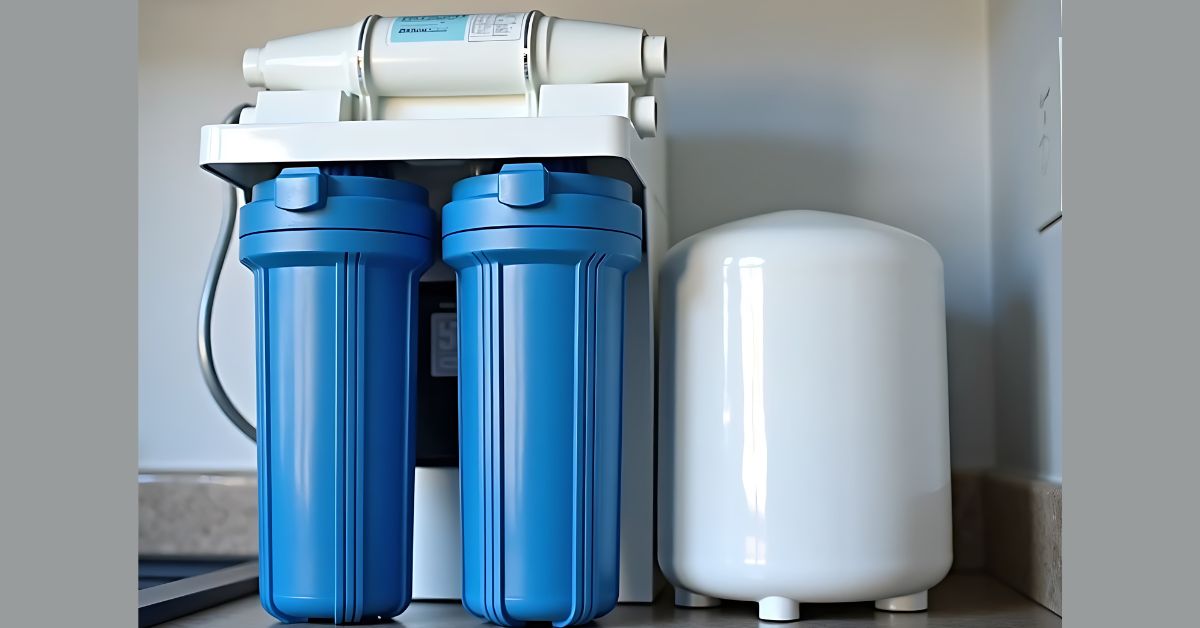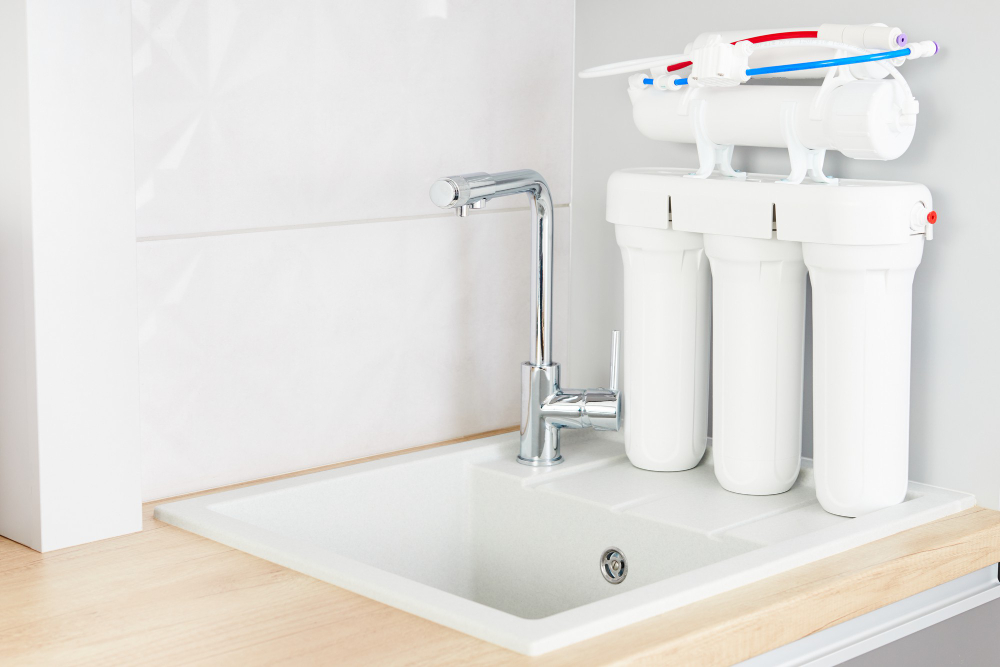 Explosive Keyword Research – Target Buyers, Not Just Traffic!
Explosive Keyword Research – Target Buyers, Not Just Traffic!
The Truth About Water Softeners vs Water Filters
Written by AMIT KUMAR » Updated on: May 16th, 2025

When it comes to improving the quality of water in your home, two common solutions often come into play: water softeners and water filters. Though they both aim to treat water, they serve very different purposes. Unfortunately, many people confuse the two, or worse, invest in the wrong system for their needs. In this detailed guide, we'll reveal the truth regarding water softeners vs water filters and assist you in making the optimal decision for your home.
1. Water Softeners vs Water Filters: The Key Difference
Let's begin with the most critical distinction first. Water softeners vs water filters can seem like a similar concept, but their purposes are quite different.
Water softeners are intended to specifically remove those minerals that create hardness, such as calcium and magnesium. These minerals have the potential to wreak havoc on your plumbing, appliances, and even your skin. In contrast, water filters attack contaminants like chlorine, lead, sediment, bacteria, and pesticides, making the water better-tasting and safer.
Short answer: Softeners handle minerals, and filters handle contaminants. Being aware of this at the beginning lays the groundwork for selecting the correct solution.
2. The Science Behind Water Softeners vs Water Filters
Knowing how both systems work makes the water softeners vs water filters argument much clearer.
Water softeners employ an ion exchange process where calcium and magnesium ions are exchanged with sodium or potassium ions. This softens the water to prevent scaling in pipes and appliances.
On the other hand, water filters are of different varieties—activated carbon, reverse osmosis, UV purification, and sediment filters. Each has an aim on different kinds of contaminants. Activated carbon filters, for instance, eliminate chlorine and organic chemicals, whereas reverse osmosis systems can eliminate even heavy metals and germs.
Through understanding the science, you'll be able to match a solution more effectively to your water woes.
3. Water Softeners vs Water Filters: Which One Do You Actually Need?
Every home doesn't need both systems. That's why it's so important to analyze your unique water problems when choosing between water softeners vs water filters.
If your water deposits white spots on dishes, makes soap difficult to lather, or dries out skin and hair, you're probably facing hard water—a classic indication for a water softener.
However, if your water smells like chlorine, has a weird taste, or you’re concerned about contaminants like lead, a water filter is your go-to solution.
In many cases, households benefit from using both systems in tandem—a water softener to handle hardness and a filter to ensure clean, safe water.
4. The Cost Factor in Water Softeners vs Water Filters
Let's discuss dollars and sense. As far as the price of water softeners versus water filters, there's a pretty range.
Water softeners generally run in the range of $500 to $2,500, and they also need to be serviced regularly, such as replacing salt every few months.
Water filters differ more in price. A simple pitcher filter will be less than $50, but a whole-house filtration system will be $1,000 to $4,000 or more based on technology and area covered.
While filters may appear to be more costly to purchase, keep this in mind: they also treat health issues, not merely scale deposits. Always look at the long-term benefit versus merely the initial cost.
5. Maintenance and Lifespan: Water Softeners vs Water Filters in the Long Run
Maintenance is a significant aspect of the water filters vs water softeners dilemma.
Water softeners need periodic refills of salt and periodic brine tank cleaning. Neglecting to do so means the system will not work to its potential and could even be damaged.
Water filters, depending on the model, might need to have cartridges replaced every 3–12 months. Reverse osmosis membranes, for example, could last 2–5 years with good maintenance.
Finally, both systems need maintenance, but filters can necessitate more frequent maintenance. Avoiding this with either system is a waste of money and a lowering of efficiency.
6. Environmental Impact: The Greener Side of Water Softeners vs Water Filters
If you have environmental concerns, the environmental effect of water softeners vs water filters may tip the scale.
Water softeners emit salty water as part of their regeneration cycle, which can hurt local ecosystems and lead to higher sodium levels in wastewater.
Water filters, particularly those employing reverse osmosis or activated carbon, generate less waste in chemical discharge. Still, reverse osmosis devices are inefficient and waste several gallons of water to filter one gallon.
The environmentally friendlier choice typically hinges on regulations in the area and usage of the systems. Nevertheless, filters tend to have a smaller environmental impact—particularly newer systems that are conservation-oriented.
7. Health and Taste Matters in Water Softeners vs Water Filters
As far as health is concerned, water softeners vs water filters are worlds apart.
Water softeners don't clean water. They merely exchange hard minerals for sodium or potassium, which will add a bit more sodium to the water—a problem for those on very low-sodium diets.
Water filters, on the other hand, can make your water much better to taste, smell, and drink. From chlorine removal to killing pathogens, filters make the water cleaner and more pleasant to consume.
Therefore, if drinking water quality is your issue, a water filter must be number one on your list.
8. Installation Difficulty: Water Softeners vs Water Filters Explained
The ease of installation is also a factor when deciding between water softeners vs water filters.
Water softeners may need a professional plumber to install correctly, particularly if they are installed on the main water line. Installation typically takes a few hours and requires space for the brine tank.
Water filters can be as easy as countertop units you can install yourself or as sophisticated whole-house systems that also need professional assistance. Reverse osmosis systems, in fact, require careful installation.
If you like a low-maintenance solution, an easy water filter will suit you better. But long-term advantage usually repays the one-time labor of professional installation.
9. Real-Life Situations: Water Softeners vs Water Filters in Practice
Let us consider a few real-life situations to show the war of water softeners vs water filters:
An Arizona family, which has very hard water, installs a water softener to lengthen the lives of their appliances. They also have a single under-sink filter for potable water.
A suburban couple with city water installs a high-end carbon filter to eliminate chlorine and enhance taste—no softener necessary.
A country house that has well water, rich in minerals as well as iron, installs a dual system: a softener for hardness and an iron filter for cleanliness.
These instances demonstrate that one size does not fit all. It's all about adapting your system to suit your specific water issues.
10. Ultimate Ruling on Water Softeners vs Water Filters: Make Your Choice Wisely
Ultimately, the water softeners vs water filters argument isn't about which is superior—it's about which is superior for you.
If your primary problem is hard water, a softener will be a lifesaver for your pipes, appliances, and sanity. If contaminants are your priority, a filter is the way to go. More often than not, the most intelligent move is to implement both systems in tandem for optimal performance.
Make your decision based on your water quality, family needs, budget, and environmental issues. And remember—clean, healthy water is always worth the cost.
Conclusion: The Clear Winner in Water Softeners vs Water Filters? It Depends on You
We've stripped away the layers of misconception between water filters and water softeners, getting to the bottom of what they do, how they help, and their limitations. With this new information, you're now able to make a wise choice that will enhance the quality of your home's water and your household's health.
After all, water is life—and softening it, filtering it, or both is simply a means to an end: improved water, improved living.
Note: IndiBlogHub features both user-submitted and editorial content. We do not verify third-party contributions. Read our Disclaimer and Privacy Policyfor details.
Men's Journal is a rugged and refined lifestyle adventure travel, food and drink Get in touch [email protected] to find out how we can help you reach everyday, affluent, and adventure seeking consumers on Men's Journal
Copyright © 2019-2025 IndiBlogHub.com. All rights reserved. Hosted on DigitalOcean for fast, reliable performance.












